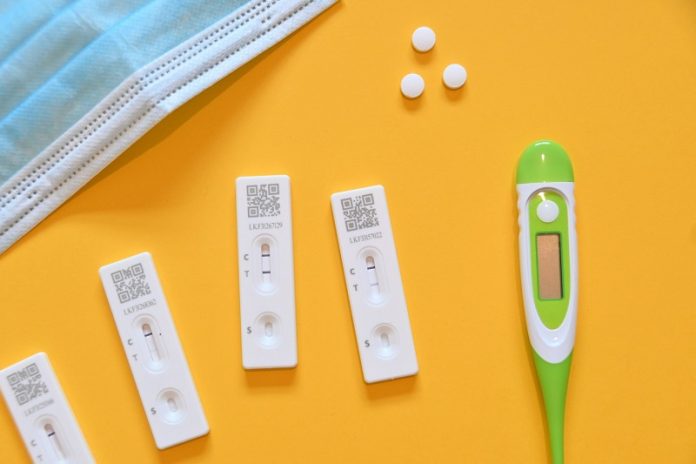
An innovative online program aimed at aiding individuals with long COVID has shown promising results in improving their quality of life, according to recent research published by The BMJ.
This program, known as REGAIN, was specifically designed to address both physical and mental health challenges experienced by those suffering from long COVID through an eight-week course of online group sessions.
The findings suggest that REGAIN not only helps alleviate symptoms such as fatigue, pain, and depression but also does so in a way that is easy to access and efficient to deliver on a large scale, offering a new tool for clinicians in managing this complex condition.
Long COVID, or post-COVID-19 condition, refers to a situation where individuals continue to experience symptoms or develop new ones more than four weeks after their initial infection.
By March 2023, millions in the UK alone reported symptoms lingering well beyond the initial recovery period, with significant impacts on their daily lives, social interactions, and ability to work.
Given the absence of trial data to support the effectiveness of rehabilitation programs for long COVID, the REGAIN trial set out to fill this gap.
The study involved 585 adults who had been hospitalized due to COVID-19 and were still feeling its effects months later.
These participants were divided into two groups: one receiving usual care, which included a single online session of advice and support, and the other participating in the REGAIN program, which offered weekly, live, supervised group sessions focusing on exercise and psychological support.
The results were clear: those who took part in the REGAIN program reported significant and lasting improvements in their health-related quality of life, with notable progress in reducing fatigue, pain, and depression.
Three months into the trial, a higher percentage of participants in the REGAIN group felt their overall health had greatly improved compared to those in the usual care group.
Importantly, the program was not only effective but also safe, with minimal serious adverse events reported and only one incident possibly related to the intervention itself.
This suggests that REGAIN is both a practical and safe option for those seeking relief from the enduring impacts of COVID-19.
However, the trial did have some limitations, including the fact that participants and those administering the program were aware of the treatment allocation, and a majority of participants were white, which may affect the generalizability of the results.
Despite these limitations, the REGAIN trial offers hope to those struggling with long COVID by providing evidence of an accessible, scalable program that can make a real difference in their recovery and overall quality of life.
If you care about COVID, please read studies about vitamin D deficiency linked to severe COVID-19, death, and how diets could help manage post-COVID syndrome.
For more information about health, please see recent studies about COVID infection and vaccination linked to heart disease, and results showing extracts from two wild plants can inhibit COVID-19 virus.
The research findings can be found in The BMJ.
Copyright © 2024 Knowridge Science Report. All rights reserved.



